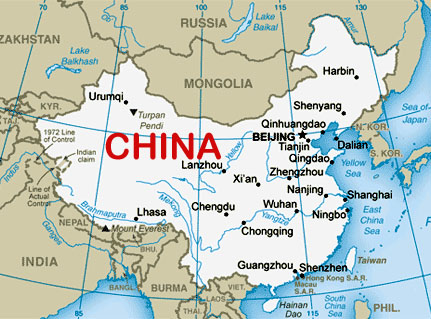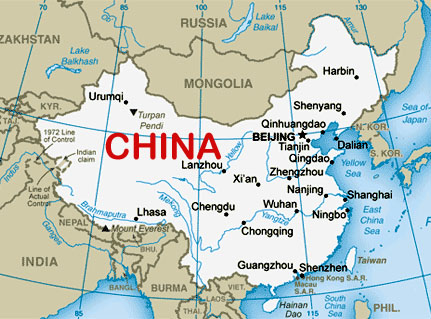SMU Tower Center National Security Conference explores the Rise of China and the U.S. “Pivot To Asia”
The Tower Center's annual National Security Conference Nov. 5-6 will focus on the rise of China and the U.S. response.

DALLAS (SMU) – The SMU John Goodwin Tower Center for Political Studies will host its seventh annual National Security Conference, Nov. 5-6, 2014. This year’s theme is the rise of China and the U.S. response.
 Map courtesy of the CIA's World Factbook |
“How does China factor into U.S. strategy? No question matters as much for the future of U.S. national security,” said Joshua Rovner, director of studies for the Tower Center. “During this year’s conference, we are bringing together a stellar lineup of speakers from the policy world, the U.S. Department of Defense, the intelligence community and the military as well as some of the nation’s smartest and most provocative scholars specializing in China, East Asia and U.S. foreign policy.”
The conference is free and open to the public. Find information and registration for the keynote dinner, and click here to find the complete list of Nov. 6 speakers and registration information.
> Rovner in The Dallas Morning News: Never mind ISIS and Putin – Asia matters more to U.S. strategy
The conference will open Wednesday, Nov. 5, with a keynote dinner address by Thomas Fingar, former chairman of the U.S. National Intelligence Council and Oksenberg-Rohlen Distinguished Fellow in the Freeman Spogli Institute for International Studies at Stanford University. He is the author of Reducing Uncertainty: Intelligence Analysis and National Security (Stanford University Press 2011). Fingar’s address, “China, Intelligence and U.S. Grand Strategy,” will delve into what the U.S. “pivot to Asia” means in terms of intelligence and foreign policy.
The second day of the conference, Nov. 6, will feature three panel discussions. Panel one will examine grand strategy and the rise of China. Experts on Asian politics will assess how China and the United States view each other, as well as how regional states view the “pivot.” The second panel will explore the military dimensions of a conflict with China, including the possibility of nuclear escalation. The final panel will close with a discussion of defense industry implications.
“The United States has already declared that it wants to ‘pivot’ its attention from the Middle East to Asia, and it has increasingly focused on overcoming Chinese military innovations in the event of a crisis or war,” said Rovner. “But what the pivot means, and what it requires from the military are still unanswered questions. The armed services are struggling to determine whether to prepare for confrontation with a traditional power like China, or continue investing their time and energy in counterterrorism, counterinsurgency, and small wars. The defense industry needs to determine what kinds of technologies to invest in and what kinds of weapons to build. Finally, the White House needs to answer basic questions about what to buy, where to send it, and how to support local allies without encouraging them to needlessly provoke China.”
The John Goodwin Tower Center for Political Studies was created to commemorate the late U.S. senator whose life was dedicated to public service and education. In the spirit of John Tower’s commitment to educate and inspire a new generation of thoughtful leaders, the Tower Center seeks to bridge the gap between the world of ideas, scholarship and teaching, and the practice of politics. The primary mission of the Tower Center is to promote the study of politics and international affairs and to stimulate an interest in ethical public service among undergraduates. The Tower Center is an academic center where all parties and views are heard in a marketplace of ideas, and the Center will pursue its mission in a nonpartisan manner.
# # #
SMU is a nationally ranked private university in Dallas founded 100 years ago. Today, SMU enrolls nearly 11,000 students who benefit from the academic opportunities and international reach of seven degree-granting schools.